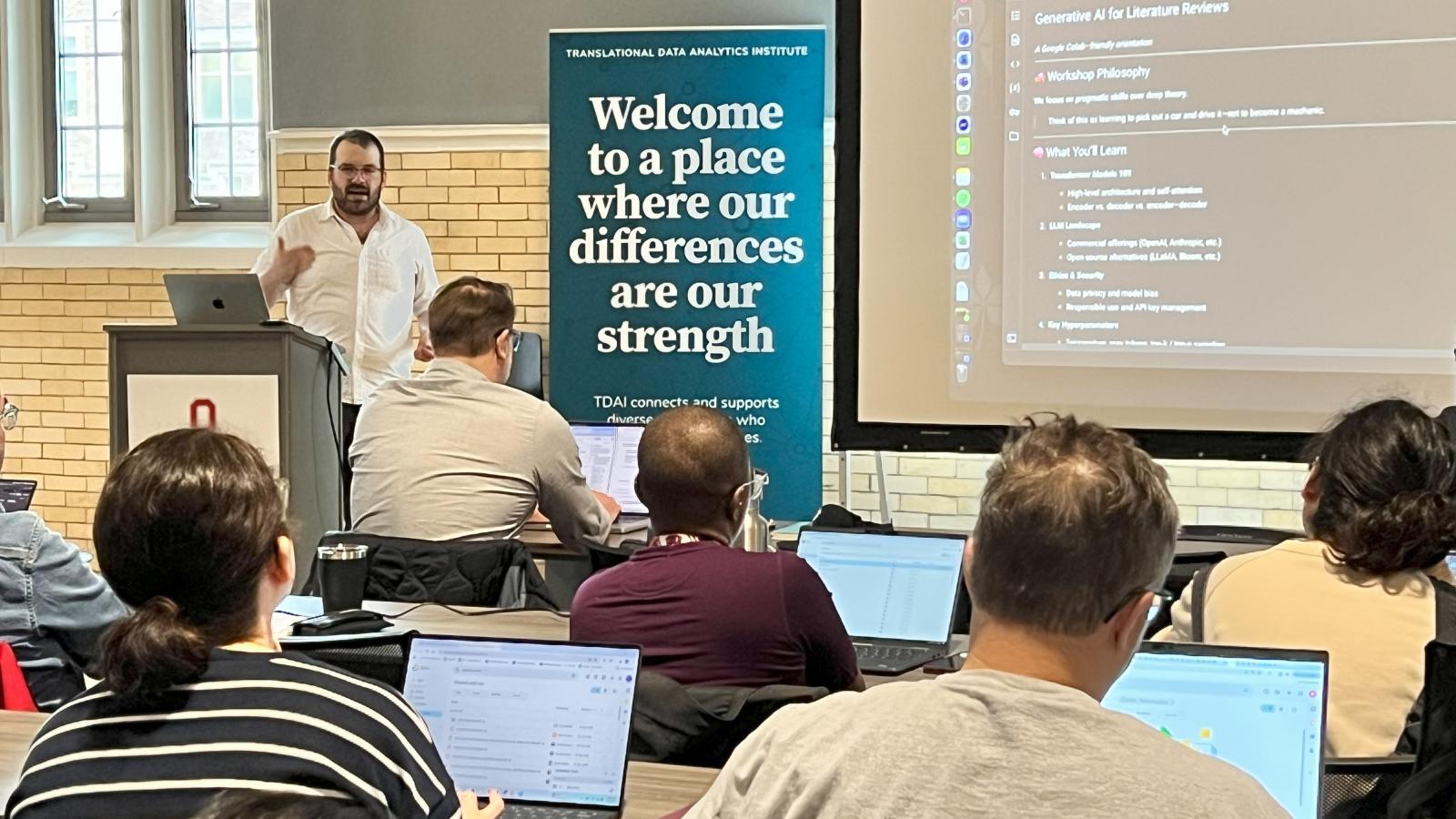AI in Your Research Workshops
TDAI's hands-on AI in Your Research workshop series for OSU researchers is designed to help academic researchers integrate cutting-edge AI tools into their scholarly work. Whether you're just beginning to explore AI or seeking to deepen your technical fluency, this series provides practical, discipline-spanning guidance tailored to a range of experience levels.
Aimed at building AI fluency across the research enterprise, this ongoing series is central to TDAI’s mission to advance big data-enabled research and innovation at Ohio State. Due to strong interest, additional sessions are being added, with plans to expand the series into a full slate of offerings through 2026. Consulting services are also offered upon request if desired.
For more information, email the TDAI Data Science Services team at tdai@osu.edu.
Upcoming Workshops
Generative AI in Your Research
When: December 15th and 16th | 9 am - 2 pm, breaking for lunch
Location: Pomerene Hall 350
Cost: $595 per person
See workshop description below
*Option to pay by requisition or purchasing order
AI for Research Workshop Types
The Generative AI in Your Research session is an interactive, application-focused workshop that guides participants through the technical details of using Large Language Models (LLMs) in research by building a tool to enhance and streamline the academic literature review process. Participants will work directly in Python environments with access to commercial LLMs.
Key topics covered:
- Understanding the transformer architecture behind modern LLMs
- Overview of commercial and open-source LLMs, including cost comparisons
- Ethical and security considerations for using LLMs in research
- Prompt engineering best practices
- Processing and formatting documents for effective LLM ingestion
- Hands-on tutorials for working with LLMs in Python
- Setting up Retrieval-Augmented Generation (RAG) to overcome document length limitations
- Techniques for summarizing articles, identifying connections across papers (authors, references, methods), and uncovering key themes
- Constructing a knowledge graph to visualize and interpret finding
Workshop materials, including documents for review, will be provided. Participants will be asked to purchase a small number of API tokens in advance to support direct, practical engagement. Instructions for doing so will be shared prior to the event. The workshop will open at 9 am to assist participants with setup. An extended office hours session will be held following the workshop to discuss how these tools can be applied to participants’ own research. Attendees are encouraged to bring questions, documents, or data from their current projects.

